in-store offers
Label Promotion
Studiocanal Vintage & Cult Classics
Check out the StudioCanal Podcast! Get a comprehensive look at StudioCanal’s cinematic offerings, with updates, insights, and interviews. Essential listening for movie buffs and collectors. ends sunday 8th september.

studiocanal’s cult classics range is a treasure chest of offbeat gems that have hooked die-hard fans, while their vintage classics range is a shrine to the timeless legends that have etched their mark deep into cinema’s soul. They both showcase a variety of genres, from drama and romance to adventure and historical epics, highlighting movies that have stood the test of time. come and celebrate the best of both of these incredible ranges with our 2 for £15 multibuy offer!
 The Wicker Man
The Wicker Man
THE WICKER MAN has had an enduring fascination for audiences since its release in 1973. A unique and bone-fide horror masterpiece, brilliantly scripted by Anthony Schaffer (Sleuth, Frenzy) and featuring an astounding performance by the legendary Christopher Lee. Director Robin Hardy’s atmospheric use of location, unsettling imagery and haunting soundtrack gradually builds to one of the most terrifying and iconic climaxes in modern cinema. When a young girl mysteriously disappears, Police Sergeant Howie (Edward Woodward) travels to a remote Scottish island to investigate. But this pastoral community , led by the strange Lord Summerisle (Christopher Lee) is not what it seems as the devoutley religious detective soon uncovers a secret society of wanton lust and pagan blasphemy. Can Howie now stop the cults ultimate sacrifice before he himself comes face to face with the horror of THE WICKER MAN?
-
Revisiting the Locations of ‘The Wicker Man’
-
‘The Wicker Man’ at 50
-
The Music of ‘The Wicker Man’
-
Worshipping ‘The Wicker Man’
-
Burnt Offerings: The Cult of ‘The Wicker Man’
-
‘Wicker Man’ Enigma
-
Image Gallery
-
All three cuts of the film included: Final Cut, Director’s Cut and Theatrical Cut
-
Trailers
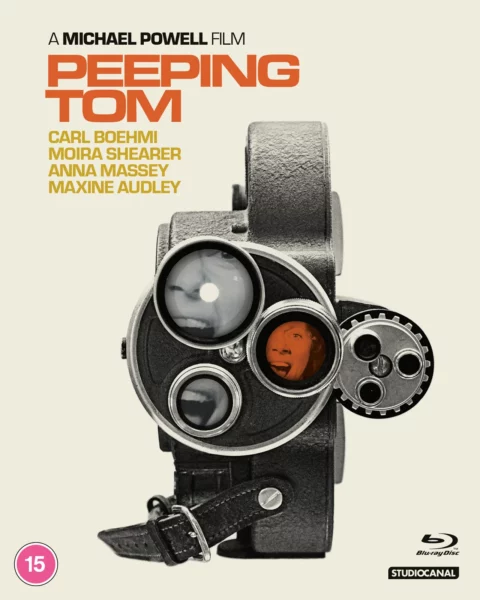
Peeping Tom
From Michael Powell, the acclaimed director of A Matter of Life and Death and The Red Shoes, Peeping Tom was, upon its release, one of the most controversial films ever made in Britain – a masterpiece of psychological terror. By day, Mark Lewis (Karlheinz Böhm) works as a modest focus-puller in a film studio. But he also shoots glamour photographs for a seedy Soho newsagent, and by night he seeks victims for his most gruesome obsession – filming the face of mortal fear, moments before death. Written by British cryptographer and playwright Leo Marks, Peeping Tom also stars Moira Shearer, Anna Massey, Shirley Anne Field, real-life Glamour Queen Pamela Green and Michael Powell’s son Columba as the young Mark. The film was shot by celebrated Director of Photography Otto Heller (The Queen of Spades, The Ladykillers, Victim).
-
Visions of Voyeurism: Peeping Tom by Sir Christopher Frayling
-
Take Me To Your Cinema: A conversation between film writers Rhianna Dillon and Anna Bogutskaya
-
Restoring Peeping Tom
-
Introduction by Martin Scorsese (2007)
-
Interview with Thelma Schoonmaker (2007)
-
Audio Commentary by Professor Ian Christie
-
The Eye of The Beholder – Scorsese, Schoonmaker and Christie among others talking about the film
-
Behind the Scenes stills gallery
-
Original trailer
-
2023 trailer
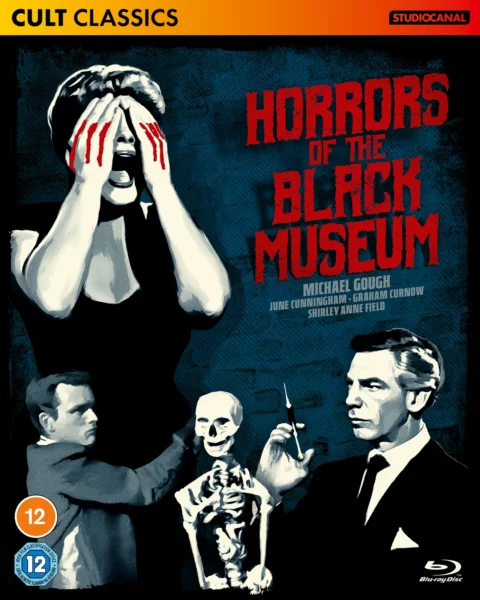
Horrors of the Black Museum
-
Bonus Footage
-
Commentary: Kim Newman and Steve Jones (writer/editor)
-
Image Gallery
-
Interviews:
-
Kim Newman (novelist/critic)
-
Exclusive Art Cards
-
Hypnovista Introduction
-
Trailers
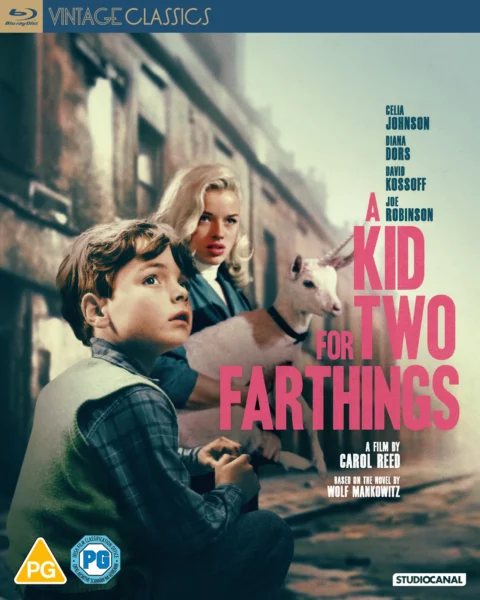
A Kid for Two Farthings
-
Memory Lane: video essay by Ella Taylor
-
Dreams and Work: an interview with Jonathan Ashmore
-
The Bespoke Overcoat (1955, Jack Clayton) – A brand new restoration of the Academy Award-winning short film written by Wolf Mankowitz and starring David Kossof and Alfie Bass
-
All in a Day’s Work: Vera Day looks back
-
Audio interview with Joe Robinson (2006)
-
Lobby Cards Gallery
-
Behind the Scenes Stills Gallery

Circle of Danger
-
Circle of Control: interview with Christina Lane,Author of Phantom Lady: Hollywood Producer Joan Harrison, the Forgotten Woman Behind Hitchcock
-
Culture Clash: interview with Imogen Sara Smith, author of In Lonely Places: Film Noir Beyond the City
-
Introduction by Jean-Baptiste Thoiret
-
Original Trailer
-
Stills gallery
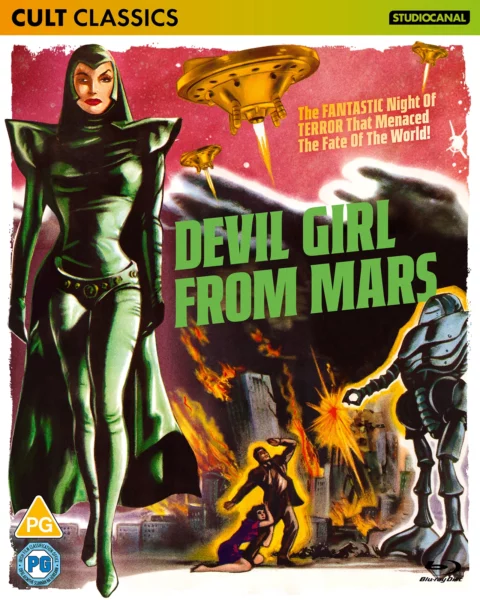
Devil girl from Mars
The Third Man
Upon its release in 1949, Carol Reed’s atmospheric thriller The Third Man instantly became a classic, winning the Grand Prix at Cannes, a BAFTA for Best British Film, and the Oscar for Best Cinematography for Robert Krasker. Featuring some of cinema’s most memorable set pieces and quotable lines, the film’s Viennese locations quickly etch themselves in the memory – the vast sewers, the Ferris wheel, the elegant avenues of its central cemetery. The city may have been bombed out and strewn with rubble, divided into four sectors by the Allies, but it still stood tall in all its faded grandeur.
Holly Martins (Joseph Cotten), a writer of pulp Westerns, arrives in post-war Vienna on the invitation of his childhood friend Harry Lime. But on arrival he finds that Harry has recently been killed by a car whilst crossing the street, leaving a grief-stricken lover, Anna (Alida Valli). When local British investigating office Calloway (Trevor Howard) claims that Lime was an unsavoury criminal, Martins accepts an offer from a local book club to stay in Vienna in order to clear his friend’s name. As he investigates his friend’s last hours, he grows closer to the doomed Anna, and learns of an unidentified “third man” at the scene of the accident, who may hold the key to the deepening mystery surrounding Harry’s death.
-
Anna Bogutskaya plays The Queen of Spades
-
The Nightmare People: Thorold Dickinson on Saturday Night at the Movies
-
Audio Commentary by Nick Pinkerton
-
Introduction by Martin Scorsese
-
Analysis by Philip Horne
-
Two audio interviews with Thorold Dickinson from 1951 and 1968
-
Behind the Scenes Stills Gallery
 The Final Programme
The Final Programme
In a far-off future, mankind is in a state of decay. But a group of scientists believe they have found the means to move humanity on to its next level in the creation of an ideal, self-replicating – and thus immortal – human being. Jerry Cornelius, Nobel Prize-winning physicist and playboy adventurer, is vital to the project’s success: his recently deceased father devised the formula of this ‘final programme’. However, the formula is captured on a microfilm hidden in the vaults of the family’s mansion, and jealously guarded by Jerry’s drug-addicted, psychopathic brother, Frank…
-
Bonus Footage
-
Interviews:
-
Jenny Runacre (actor)
-
-
Exclusive set of art cards
-
Kim Newman on Fuest and ‘The Final Programme’
-
Italian title sequence
-
Trailers
 Cross of Iron
Cross of Iron
WWII, 1943, the Russian front. An arrogant aristocratic Prussian Officer named Stransky (Maximilian Schell) is assigned as the new commander of a German platoon, his only ambition is to win the Iron Cross, in order to maintain his family honour. When Stransky falsely claims credit for bravely leading the squad into a bloody battle against the Russians, he names gutsy Sergeant Rolf Steiner (James Coburn) as his witness. When Steiner refuses to be complicit, a battle of wills between the two men from very different backgrounds ensures. Then Stransky purposefully fails to relay an order to the squad to fall back from their position, leaving them surrounded by Russian troops and suffering heavy bombardment. Knowing that defeat is inevitable their only goal is survival….
Heralded as the most anti-war war film ever made, Cross of Iron is a bloody and thought-provoking depiction of the horrors of war. As writer and director of this and other such provocative classics as The Wild Bunch and Straw Dogs, Sam Peckinpah has served as an inspiration for everyone from Tarantino to Kathryn Bigelow.
-
Filming Steiner
-
Filming Steiner pt 2
-
Steiner in Colour
-
Steiner on Set
-
Promoting Steiner
-
Audio Commentary by filmmaker and historian Mike Siegel
-
Passion & Poetry – Sam Peckinpah’s War: A documentary by Mike Siegel featuring James Coburn, Senta Berger, David Warner, Vadim Glowna, Roger Fritz, Katy Haber & Sam Peckinpah
-
1976 on set audio interviews: Sam Peckinpah (5:06) / James Coburn (5:30) / James Mason (6:05) / Maximilian Schell (4:35)
The Three Musketeers
A swashbuckling triumph, the Musketeers films directed in the early 1970s really show Richard Lester’s versatility as a director and have been admired by everyone from Quentin Tarantino to Steven Soderberg.
In 17th Century Paris, young, naïve and energetic D’Artagnan (Michael York, Cabaret, Murder on the Orient Express) leaves home to seek his fortune as a swordsman. Making friends with the three musketeers: world-weary Athos (Oliver Reed, Women in Love, Oliver!), comically arrogant Porthos (Frank Finlay, Casanova, The Comedy Man) and chivalric Aramis (Richard Chamberlain, The Thorn Birds, King Solomon’s Mines), he is invited to join them in their efforts to thwart the aristocratic schemer Cardinal Richelieu (Charlton Heston, The Agony and the Ecstasy, El Cid). Richelieu plots to prove the infidelity of the Queen (Geraldine Chaplin, Doctor Zhivago, Talk to Her) to King Louis XIII (Jean-Pierre Cassel, Discreet Charm of the Bourgeoisie, Murder on the Orient Express) in order to increase his own power…. Whilst attempting to foil the Cardinal’s plans, D’Artagnan finds himself also juggling affairs with both the charming Constance Bonancieux (Raquel Welch, One Million Years BC, She) as well as the passionate Milady De Winter (Faye Dunaway, Chinatown, Bonnie & Clyde), a secret agent for the Cardinal….
-
Neil Sinyard on The Three Musketeers
-
The Saga of the Musketeers Part 1
-
The Making of The Musketeers vintage EPK
-
Original US trailer
-
Original UK trailer
 Blazing Magnum
Blazing Magnum
-
NEW SPECIAL SENTIMENTS: Alberto De Martino’s Magnum Memories
-
NEW CITY HUNTER: Interview with film historian Kim Newman
-
Theatrical trailer
-
Blu-Ray includes an exclusive set of artcards
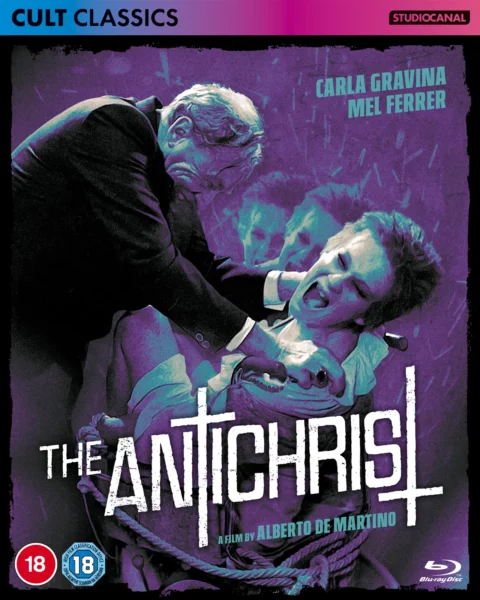
The Antichrist
-
Commentary: Lee Gambin (author/critic) and Sally Christie (critic)
-
Documentaries:
-
‘Sacred and Profane’
-
‘Raising Hell’
-
The Tempter Opening Credits
-
TV Spot
-
Set of art cards
The Elephant Man
-
BFI Q&A with Jonathan Sanger
-
Interview with stills photographer Frank Connor
-
Interview with David Lynch
-
Interview with John Hurt
-
Mike Figgis interviews David Lynch
-
The Air Is On Fire: Interview with David Lynch at Cartier Foundation
-
Joseph Merrick, The Real Elephant Man
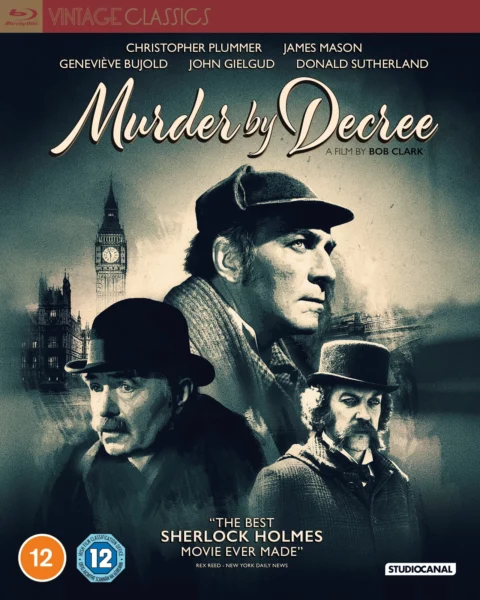
Murder by Decree
-
Audio commentary with Film Journalist Kim Newman and Crime Fiction Historian Barry Forshaw
-
Interview with Film Journalist Kim Newman
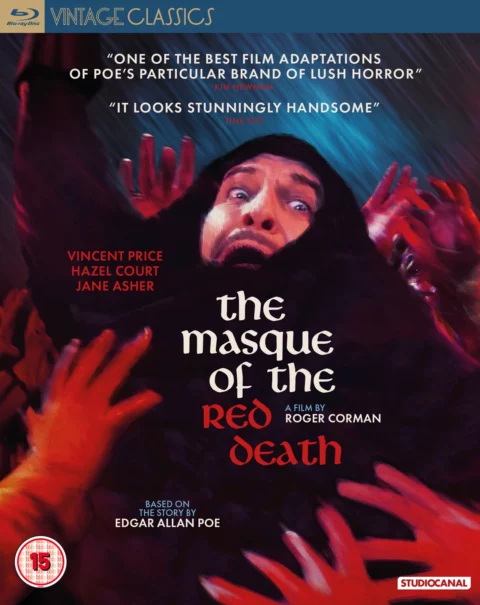
The Masque of the Red Death
-
Colour and Censorship in The Masque of The Red Death – Interview
-
With Keith Johnston
-
Audio Commentary With Kim Newman and Sean Hogan
-
Audio Commentary with Roger Corman
-
Roger Corman: In Conversation with Kim Newman at The BFI
-
Roger Corman: Behind The Masque
-
Behind The Scenes Stills Gallery
-
Booklet written by Tessa Idlewine, Film Preservationist at The Academy
-
Artcards
 Fright
Fright
The original British slasher film from 1971, Fright was directed by Peter Collinson (The Italian Job, Straight on Till Morning), and stars Honor Blackman (Goldfinger), Susan George (Straw Dogs), Ian Bannen (The Flight of the Phoenix), George Cole and Dennis Waterman (Minder).
Young babysitter Amanda (Susan George) arrives at the Lloyd residence (Honor Blackman and George Cole) to spend the evening looking after their young son. Soon after the Lloyds leave, a series of frightening occurrences in the gloomy old house have Amanda’s nerves on edge. The real terror begins, however, when the child’s biological father appears after recently escaping from a nearby mental institution. Pre-dating the release of Halloween by seven years, Fright was the groundbreaker for the ‘terrorized babysitter’ variation of the ‘home invasion’ horror genre.
-
Interview with Susan George
-
Interview with Kim Newman
-
Behind the Scenes Stills Gallery
-
English SDH
The Ladykillers
Arguably the finest and most popular Ealing film ever made, The Ladykillers is a black comedy that follows the hilarious capers of a group of small-time crooks, taking on more than they can handle in the form of sweet elderly landlady, Mrs Wilberforce (BAFTA Award winning actress Katie Johnson, How To Murder A Rich Uncle).This group of seedy misfits are planning a security van robbery and rent a room from Mrs Wilberforce in her rickety Victorian house next to King’s Cross station from which to base their operation. To conceal their true purpose, they pose as a string quartet, though they cannot play a note and are in fact miming to a recording of Boccherini’s Minuet. The gang pull off the robbery but none of them could have predicted that their greatest obstacle to escaping with the loot would be their tiny hostess.
-
documentary ‘Investigating the Ladykillers’ featuring new and archive interviews including Reece Shearsmith, The Guardian’s Catherine Shoard, Stuart Maconie, Ronald Harwood, Allan Scott and Terence Davies
-
‘Colour in The Ladykillers’: new interview with Professor Keith Johnston
-
‘Forever Ealing’ documentary narrated by Michael Balcon’s grandson Daniel Day-Lewis
-
Audio commentary with author and film scholar Philip Kemp
-
King’s Cross locations featurette with Alan Dein
-
Excerpt from BBC Omnibus ‘Made in Ealing’ (1986) featuring interviews with Alexander Mackendrick and William Rose.
-
Audio interview with Assistant Director Tom Pevsner
-
Peter Sellers spoof trailer from the set of The Ladykillers
The Servant
Considered by many to be one of the greatest British films of the last century, Joseph Losey’s The Servant features BAFTA-winning performances from Dirk Bogarde and James Fox as servant and master in this taut drama exploring class conflicts and sexual tensions in a west London townhouse in 1960s London.
Marking the first of three collaborations between director Joseph Losey and celebrated playwright Harold Pinter, The Servant was adapted from Robin Maugham’s short story and features stunning black & white cinematography by Douglas Slocombe (The Lavender Hill Mob, Kind Hearts & Coronets, Indiana Jones) and a fantastic soundtrack by composer John Dankworth (The Avengers, Darling). Sly, seductive manservant Barrett (Bogarde: The Blue Lamp, Darling, Accident) worms his way in to the affections of foppish aristocrat Tony (Fox: Performance, A Passage to India). His awe-inspiring efficiency cleverly masks his true intentions, ultimately giving way to a suspicious and insidious control where the roles of master and servant are reversed.
-
Video essay with Matthew Sweet and Phuong Le
-
Location featurette with Adam Scovell
-
Trailer
-
James Fox interviewed by Richard Ayoade
-
Interview with Wendy Craig
-
Interview with Sarah Miles
-
Interview with Stephen Woolley
-
Harry Burton on Harold Pinter
-
Audio interview with Douglas Slocombe conducted by Matthew Sweet

The Conquest of Everest
The Conquest of Everest tells the awe-inspiring story of the first successful attempt on the peak of Mount Everest, using footage filmed by the climbers as they ascended to the top of the highest mountain in the world. A truly unique document of an epic journey, the film won a BAFTA for Best Documentary.
Narrated by Meredith Edwards (A Run For Your Money) and featuring the mountaineers Sir Edmund Hillary, Wilfred Noyce and Tenzing Norgay, the documentary details the history, preparation and description of the route as well as fascinating footage of previous attempts and the social context of the achievement.
In order to document the entire ascent, the producers had to rely on footage from the climbing team themselves. Select members were given rudimentary training and equipped with cameras and a variety of lenses, which they had to lug around in addition to the actual essentials, such as their oxygen tanks. They also carried a few experimental automatic cameras that were as small as cigarette packets and much easier to use. Original cameraman Tom Stobart fell ill at the lower level, so George Lowe, Hillary’s climbing partner, took over as director and came back with dozens of magazines of footage. The news of the expedition’s success was received on the morning of the Queen’s coronation helping further cement its place in history.
-
British Entertainment History project Interview with producer John Taylor (1988)
-
The Conquest of Everest Premiere (1953)
Villain
Directed by Michael Tuchner and adapted from James Barlow’s 1968 novel ‘Burden of Proof’ by the acclaimed British writing duo Dick Clement and Ian La Frenais (The Bankv Job, The Commitments), Villain is an intricate and graphically violent British counterpart to Get Carter and The French Connection starring the legendary Richard Burton, and fore- shadowing seminal 1970s television police dramas such as The Sweeney.
Vic Dakin (Burton) is a sadistic, gay, East End gangster with a mother fixation, a character loosely based on the notorious Ronnie Kray. For many years he has made a living from running a prosperous protection racket and, so far, has avoided arrest. After being tipped-off about a potential payroll heist, Dakin decides to step up his criminal activities and starts planning the job. He recruits a gang from the criminal underworld, including Wolf Lissner (Ian McShane), his occasional lover. This leads to greater danger and greater exposure with Police Inspector Bob Matthews (Nigel Davenport) watching his every move, determined to finally catch him in the act.
 Yield to the Night
Yield to the Night
Yield to the Night (1956) stars the great Diana Dors (The Weak and the Wicked) and was directed by J. Lee Thompson (The Guns of Navarone, Ice Cold in Alex). Adapted for the screen by Joan Henry (from her own novel) and John Cresswell, the film is notable in being a rare female led 50s drama – both in terms of the story and the fact it was written by a woman. It has been described as one of the few “Angry Young Woman” films and is one of Diana Dors’ best critically reviewed roles
Nominated for 3 BAFTAs and the Cannes Palm D’or in its original release in 1956, Dors is supported by a cast including Michael Craig (The Angry Silence, Mysterious Island), Yvonne Mitchell (Woman in a Dressing Gown), Marie Ney (Simba), Mercia Shaw and Harry Locke (Passport to Pimlico). Although Yield to the Night is widely believed to be based on the story of Ruth Ellis, the last woman to be executed by hanging in the UK in 1955, the book that the film is based on was, in fact, written before then.
-
Interview with Michael Craig
-
Interview with Melanie Williams, film historian and author
-
Excerpt from Film Fanfare – no 12 – Diana Dors interview(1956)
-
Excerpt from Film Fanfare – no 19 – Yield to the Night Premiere (1957)
-
Behind the scenes stills gallery
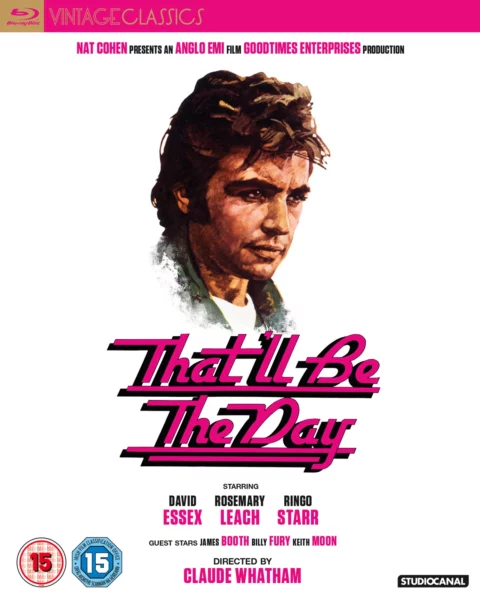
That’ll be the day
Starring a young David Essex in the role that launched his film career and featuring a who’s who of British music in a supporting cast including Ringo Starr, Keith Moon, Billy Fury, Marty Wilde, Dave Edmunds and Adam Faith, That’ll Be The Day recreates perfectly the experience of being a young music fan in the late ‘50’s and early ‘60’s and is a unique insight into a time where the world was changing so rapidly.
Produced by the great David Puttnam (Melody, The Mission, Chariots of Fire), the film boasts a soundtrack that capture the music of the era perfectly and feature timeless music by David Essex, Billy Fury, Bobby Darin, the Everly Brothers, Jerry Lee Lewis.
Nominated for two BAFTAs on release in 1973, That’ll Be The Day tells the story of Jim MacLaine (David Essex – Stardust, Silver Dream Racer). Abandoned by his father when he was young, Jim, a suburban school dropout, leaves home and drifts through a succession of dead- end jobs until he finds an outlet for his frustration in rock ‘n’ roll. Tossing away the chance of a university education much to the consternation of his mother (Rosemary Leach – A Room with a View, Turtle Bay), alienated MacLaine becomes a lowly deckchair attendant before streetwise friend Mike (Ringo Starr – A Hard Day’s Night, Help!) gets him a job firstly as a barman and then with the fun fair. The initially shy MacLaine quickly becomes a heartless fairground Romeo leaving a trail of broken hearts in his wake.
-
Interview with David Puttnam
-
Interview with Ray Connolly
-
Interview with author Bob Stanley
-
Stills gallery
-
English SDH
 I, the Jury
I, the Jury
It’s nearly Christmas in New York City but private investigator Mike Hammer (Biff Elliot) is out for vengeance when his closest friend Jack Williams (Robert Swanger) is murdered. Hammer vows to identify the killer ahead of the police, working his way through an increasingly large number of suspects. His starting point includes Jack’s fiancee, a beautiful psychiatrist, twin socialite sisters, and a gangster. But as he tracks them down, so too does the murderer, creating a dangerous game of cat and mouse.
-
Commentary: Biff Elliot (actor) and Max Allan Collins (author)
-
Interviews: Biff Elliot (actor)
-
Set of art cards
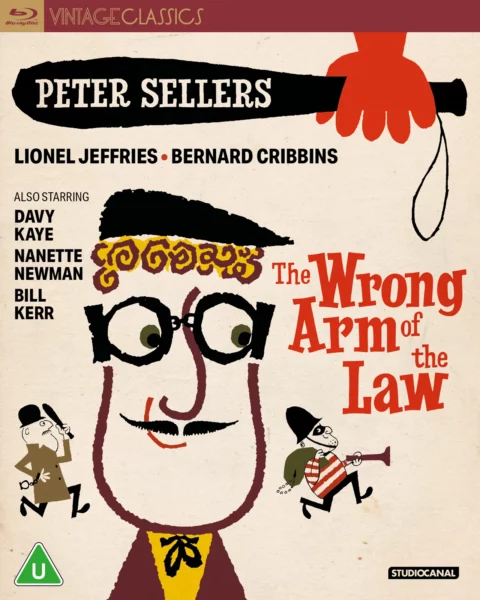
the wrong arm of the law
Directed by Cliff Owen and scripted by the incomparable British comedy writers Ray Galton and Alan Simpson (Hancock’s Half Hour, Steptoe and Son) with John Antrobus, The Wrong Arm of the Law brings together a Who’s Who of familiar faces from British film and television of the 60s and 70s, not least the legendary Peter Sellars (I’m Alright Jack, The Ladykillers).
In London, a group of Australian gangsters disguised as “Bobbies”, led by Jack Coombes (Bill Kerr, The Dam Busters), are diverting the ill-gotten gains of the local criminal gangs. Gang leader “Pearly” Gates (Sellers), who operates from the cover of a French couturier, finds his takings severely cut. Initially he blames rival crook “Nervous” O’Toole (Bernard Cribbins, The Railway Children) but when it emerges that they are both being scammed by the same gang, they form an unlikely alliance with Scotland Yard Police Inspector “Nosey” Parker (Lionel Jeffries, Nowhere to Go) – to eliminate the so-called “I.P.O. mob” (I.P.O. – Impersonating a Police Officer) and return things to “normal”.
-
The Long Arm of the Screenwriter – John Antrobus Remembers The Wrong Arm of The Law
-
Behind the Scenes stills gallery
-
Original Trailer

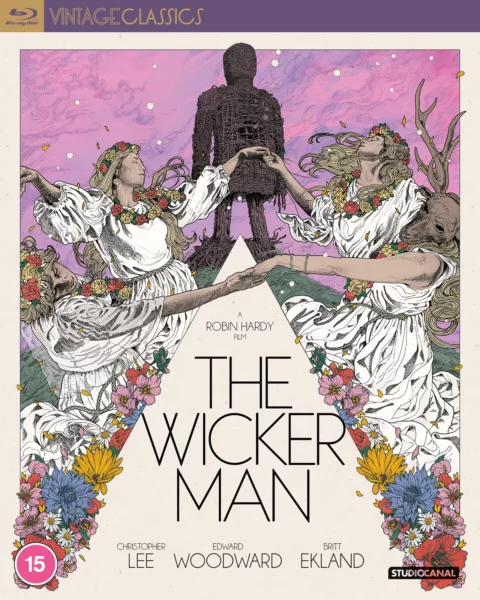 The Wicker Man
The Wicker Man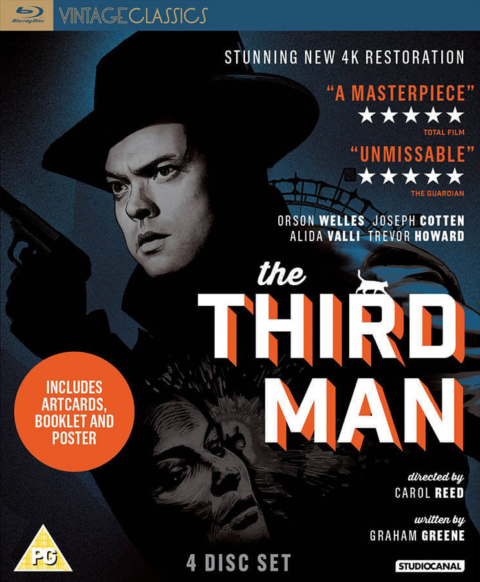
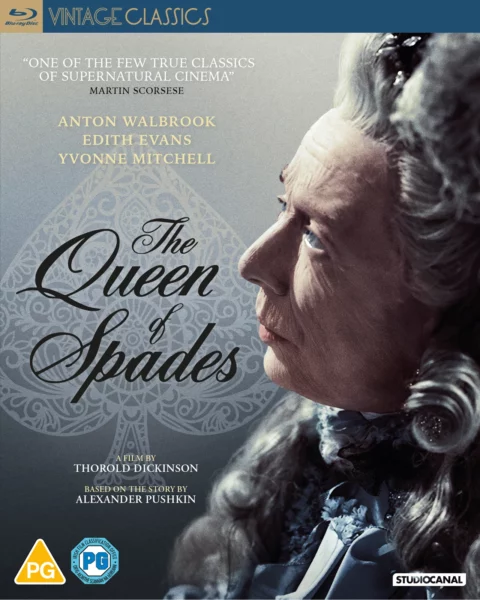
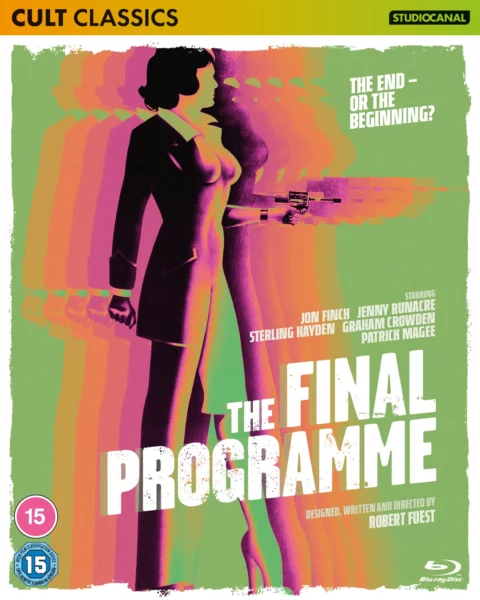 The Final Programme
The Final Programme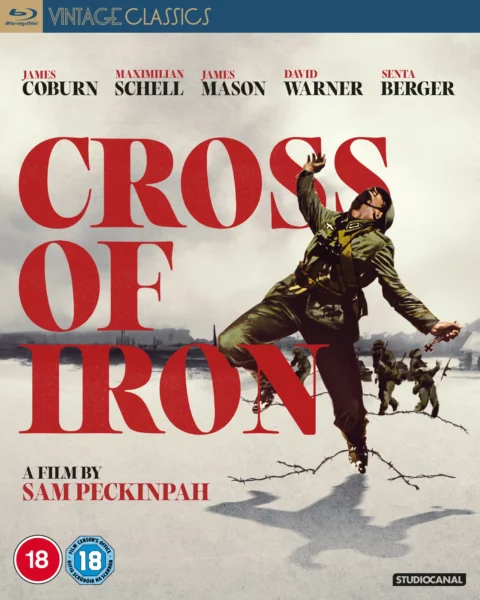 Cross of Iron
Cross of Iron
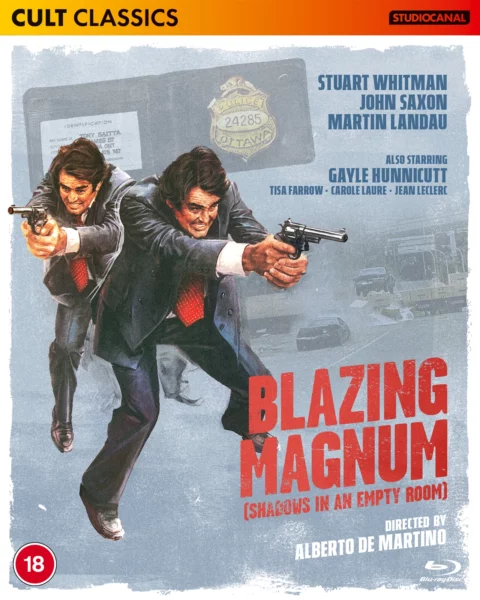 Blazing Magnum
Blazing Magnum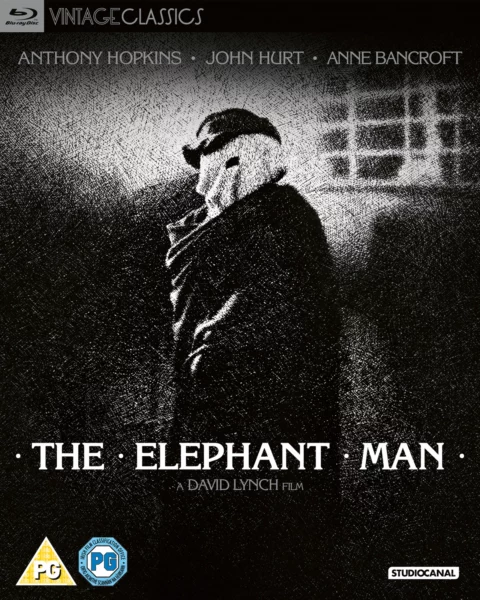
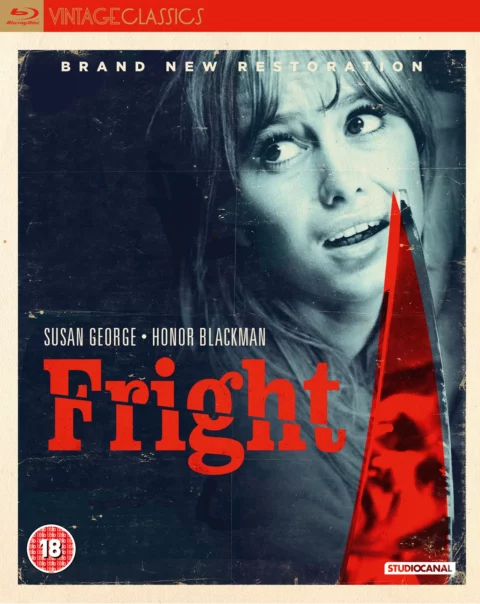 Fright
Fright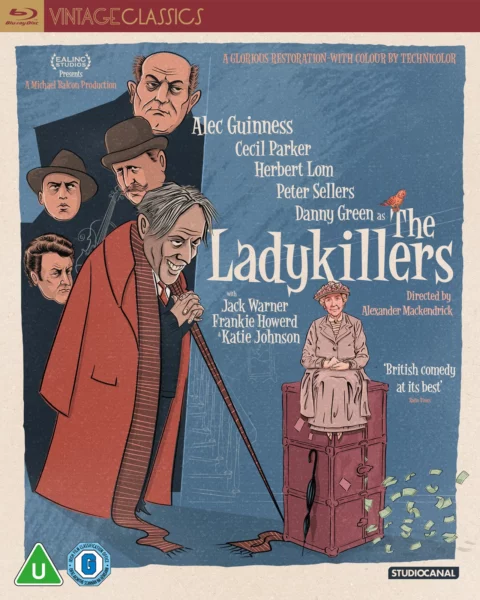
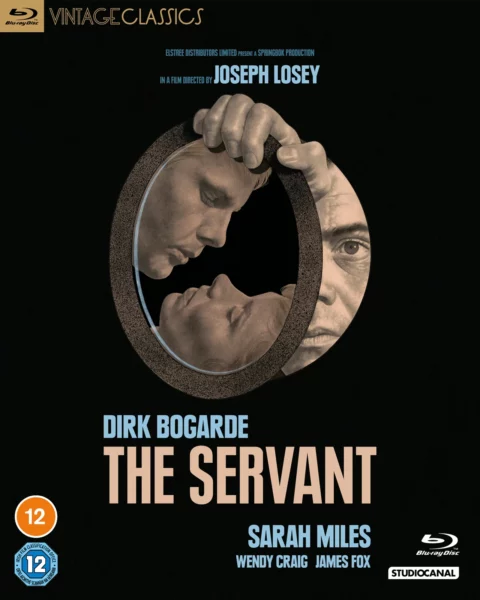
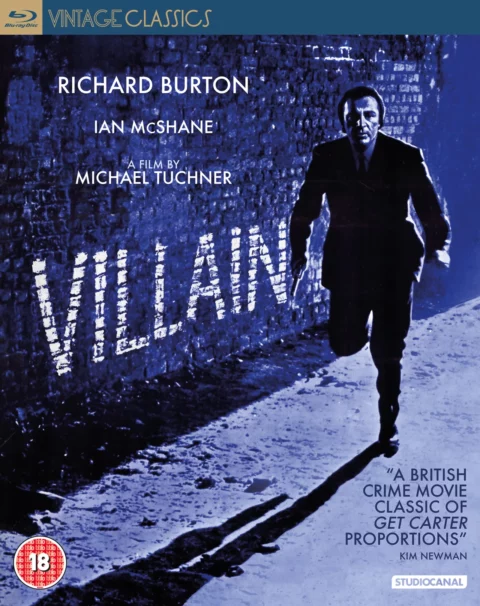
 Yield to the Night
Yield to the Night I, the Jury
I, the Jury